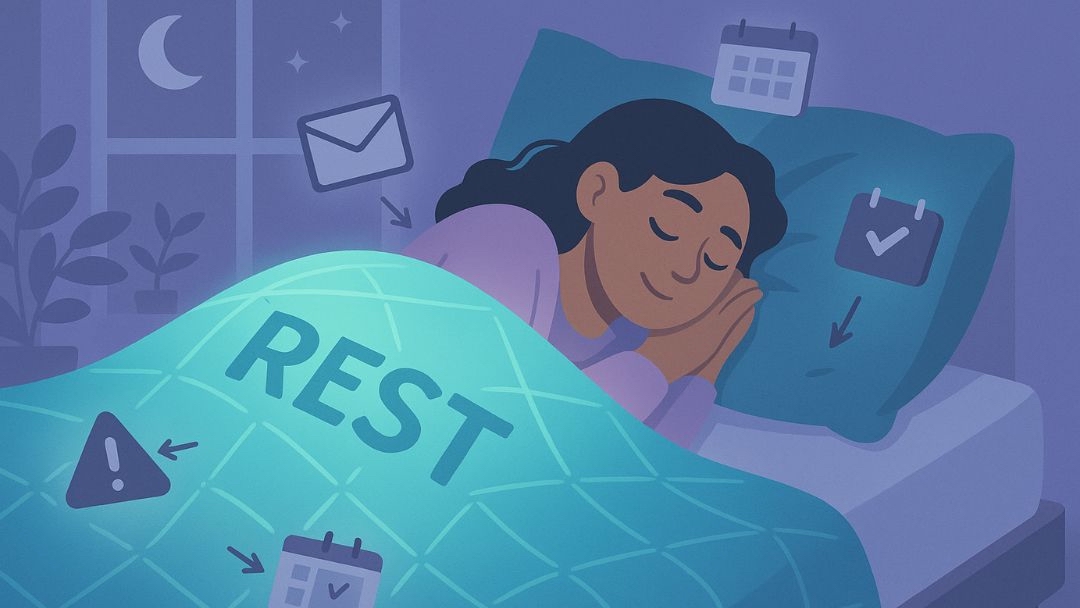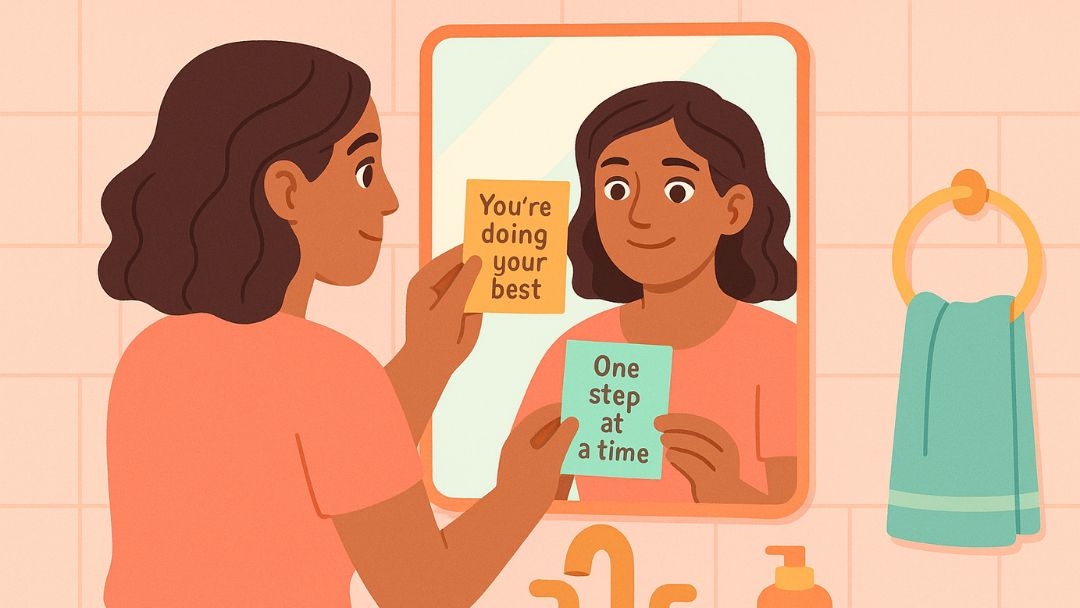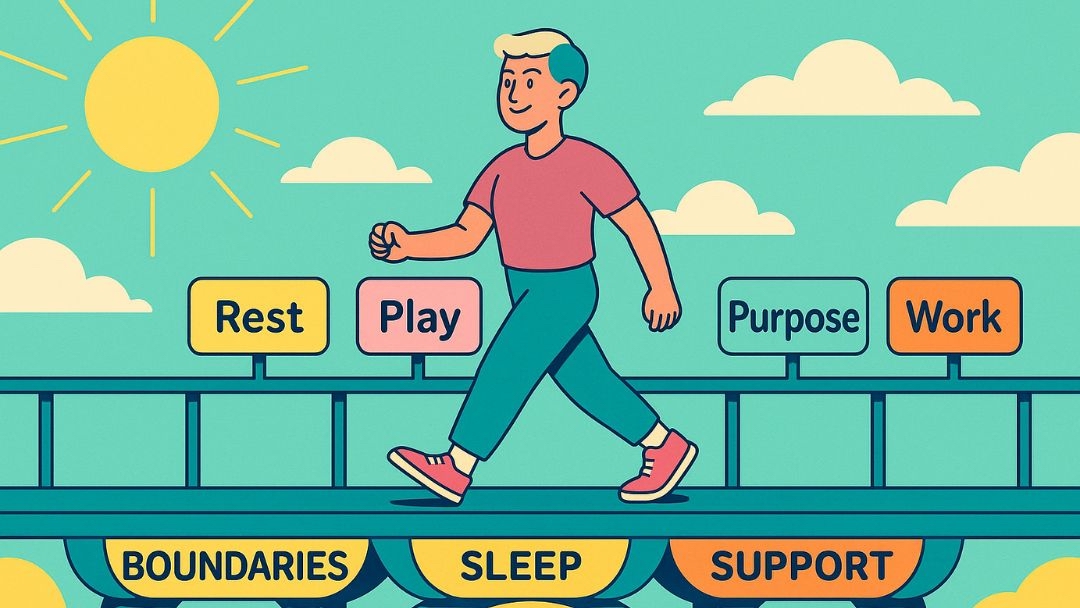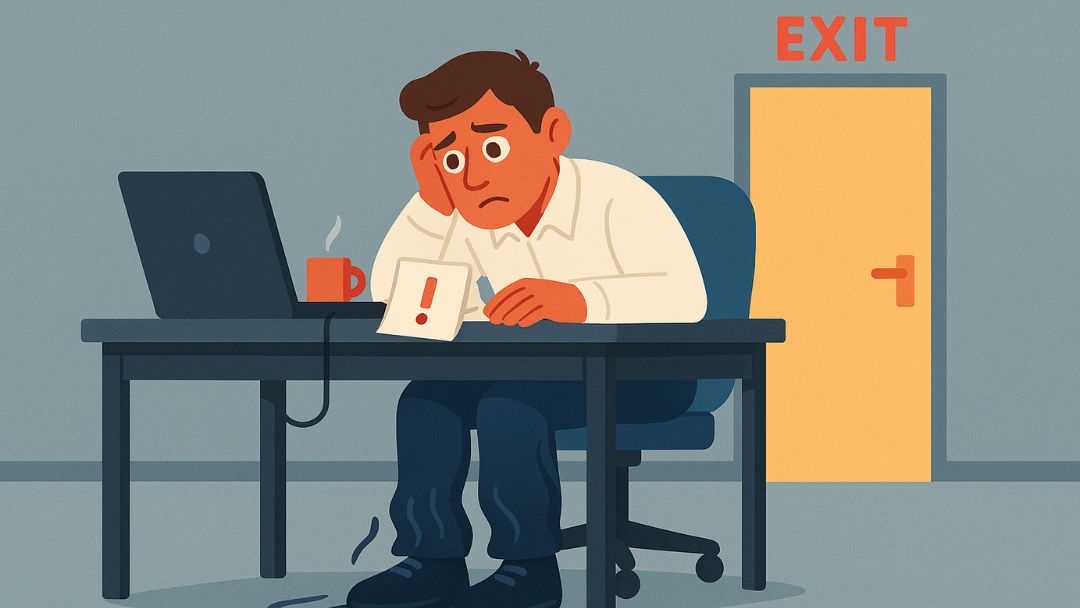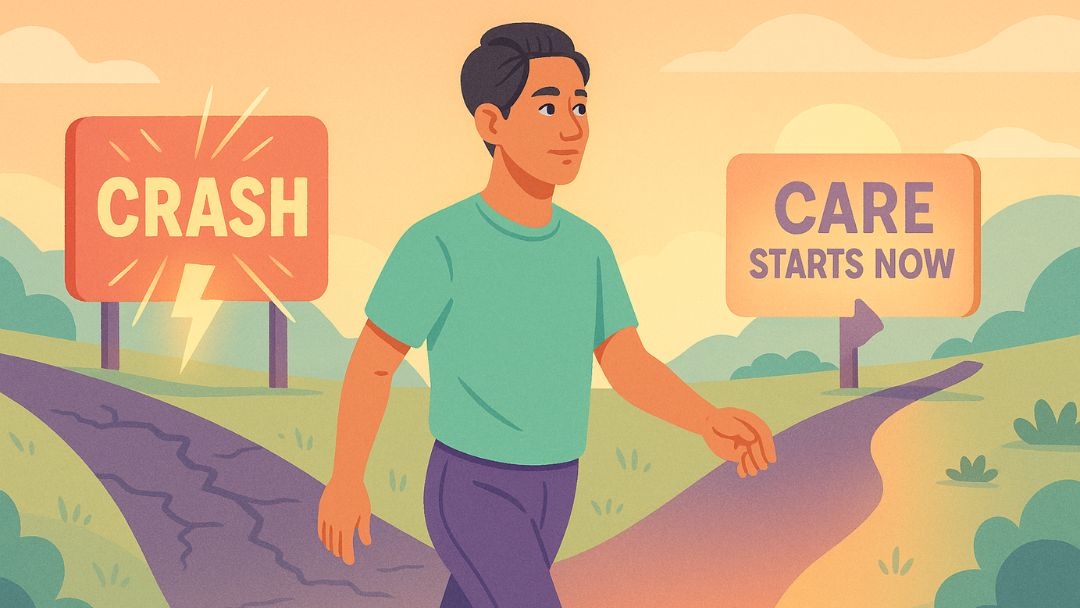How to Prevent Burnout Before It Starts (and Reclaim Your Energy)
Nearly 80% of U.S. workers report feeling burned out at least sometimes. This guide shares practical ways to protect your energy, set boundaries, and stay balanced—plus how spotting the early warning signs of burnout syndrome can help you stay ahead of it.


Back
5 mins read
Burnout syndrome doesn’t always start with a crisis. Sometimes, it sneaks in slowly—one missed lunch break at a time. One late night. One “I’ll rest after this project.”
Until suddenly, you’re exhausted, irritable, and questioning everything. Your motivation is gone, your stress is constant, and you feel like you’re failing at everything—work, relationships, even rest.
If that sounds familiar, you’re not alone. And you’re not stuck.
The good news is that burnout is preventable. It starts with noticing the warning signs and building everyday habits that protect your energy, focus, and well-being.
Let’s walk through the most effective ways to stop burnout in its tracks—before it stops you.
1. Prioritize Quality Sleep
Burnout feeds on exhaustion, and your body isn’t built to “push through” it forever.
Poor sleep makes it harder to focus, regulate emotions, and deal with everyday stress. And the worse the burnout gets, the harder it becomes to sleep well. It’s a vicious cycle. Studies show that consistently getting enough sleep (around 7+ hours) can lower your risk of burnout and help you recover faster when stress hits hard. Set a real bedtime, put the phone out of reach, and give your brain the rest it needs to function like it should.
2. Move Your Body
Exercise is one of the fastest ways to disrupt the stress cycle.
Yes, it sounds obvious—but the mind-body connection is real, and movement is one of the most underused burnout recovery tools. You don’t need a gym membership to fight burnout. A walk around the block, a stretch session, or even five minutes of dancing in your kitchen can help release tension and boost feel-good chemicals in your brain. Movement isn’t just for fitness—it’s for mental survival.
3. Fuel with Real Food
Your brain can’t function on caffeine, carbs, and hope alone.
Burnout often leads to poor eating habits—like relying on junk food or skipping meals entirely—which only worsens energy crashes and mood swings. But the flip side is also true: eating nourishing, balanced meals helps build resilience before stress takes over. Focus on whole foods, hydration, and omega-3s—especially during high-stress periods. You’re not dieting here; you’re stabilizing your nervous system.
4. Rethink How You Manage Time

Poor time management isn’t just annoying—it’s a burnout accelerator.
When every task feels urgent, your stress response never shuts off. Break your work into manageable blocks, give yourself realistic timeframes, and say no to tasks that don’t fit. Your brain isn’t built for chaos. It’s built for clarity.
5. Set Boundaries at Work (and Keep Them)
If you always say yes, burnout will say yes to you.
Overwork and blurred lines between personal and professional life are burnout’s best friends. Whether it’s turning off Slack after 6 p.m. or refusing weekend work you didn’t agree to, drawing the line protects your energy—and your sanity. Talk of “work-life balance” might feel overused, but it remains one of the most effective burnout prevention strategies out there.
6. Take Micro-Breaks
Tiny pauses throughout the day prevent mental crashes later.
You don’t have to wait for vacation to recover. Even five-minute breaks between tasks help regulate stress hormones, reset your focus, and keep your nervous system from overloading. Step away. Breathe. Come back stronger.
Related: Burned Out from the Grind? How to Build Healthy, Sustainable Success
7. Address Negative Self-Talk
Burnout thrives on self-doubt, so quieting that voice matters more than you think.
The pressure to “just push through” can quickly become an inner monologue of “Why can’t I handle this like everyone else?” That mindset doesn’t build resilience—it chips away at it. Replace harsh self-judgment with realistic, supportive thoughts. You’re a human being, not a productivity robot. Self-compassion isn’t fluff; it’s part of the fix.
8. Try Flexible Work Options
Burnout isn’t always your fault—it’s often structural.
If your job allows it, explore remote work, hybrid setups, or flexible hours. The autonomy to manage your time and space can significantly reduce burnout risk. Employers benefit too: less stress = better performance + higher job satisfaction.
9. Reevaluate Your Career Fit
The wrong job can burn you out, no matter how much self-care you do.
If you’re constantly drained, frustrated, or underused, the issue may not be your habits—it might be a mismatch between the job and your strengths. Career misalignment is a major burnout trigger. A personality or career assessment can help you figure out whether your role actually fits who you are.
10. Figure Out If It’s Time to Quit
Sometimes the healthiest move isn’t a new habit—it’s a new job.
If you're stuck in a toxic environment—where boundaries are ignored, disrespect is constant, or pressure never lets up—burnout isn’t just likely, it’s inevitable. Even a role you once loved can become unsustainable if the culture is draining you. Take a step back and ask the hard question: Is it the work; or is it where (and who) you’re doing it with?
11. Learn the Early Warning Signs
Burnout often starts as background noise—until one day, it takes over.
Mental fatigue, short tempers, and a fading interest in things you used to enjoy can all be early warning signs. Maybe you're snapping at people, dreading work, or zoning out more than usual. It might not feel serious yet, but the quiet drain adds up, and long-term stress can take a real toll on your physical health, too. Catching it early gives you the best shot at staying in control.
Not sure if it’s just stress? Our Burnout Symptoms Test can help you spot the difference.
12. Know When to Get Help
Burnout doesn’t make you weak—it means you’ve been strong too long.
If your energy never returns—no matter how well you sleep, eat, or rest—it may be time to seek outside support. When burnout reaches a certain point, self-care alone isn’t enough. This is especially true if you are experiencing advanced signs of depression. A mental health professional can help you untangle the deeper causes, rebuild your capacity, and move forward with tools that work.
How to Know If It's More Than Just Stress

Stress comes and goes. Burnout digs in and stays.
It often begins with subtle shifts—like skipping meals, zoning out in meetings, or going numb to things you used to care about. Over time, those patterns become your new normal.
And if you're a teacher, healthcare worker, therapist, or anyone in a high-stakes or caregiving role, burnout may creep in so gradually that you don’t notice it until you hit a wall. Compassion fatigue is real—and it drains your ability to give, connect, or even care.
Here are some key signs that your stress may have tipped into burnout:
- You’re constantly exhausted, even after a full night’s sleep
- Work feels pointless, overwhelming, or emotionally draining
- You’ve become irritable, withdrawn, or unusually cynical
- Hobbies and relationships feel like too much effort
- Your sleep, appetite, or focus is noticeably off
- You feel stuck, trapped, or like nothing will change
- You’ve caught yourself fantasizing about quitting or disappearing
If you see yourself in this list, please know, it’s not a personal failure.
It’s a sign that your workload, environment, or expectations aren’t sustainable. And the earlier you recognize it, the better your odds of bouncing back.
Please Don’t Wait Until It’s Too Late
You don’t have to crash to change.
Burnout is real, but it’s not inevitable. And you don’t have to fix everything overnight. Just start with one thing: sleep an extra hour, take a short walk, say no to that extra task.
Even small actions—and small mindset shifts—can begin to reset your energy and remind you that you’re allowed to protect your peace. Then build from there.
Your energy isn’t unlimited, but your capacity to recover is.
And if you’ve made it this far, there’s probably a reason.
Something in this article hit home. Maybe it’s time to check in—with yourself, with your patterns, with your well-being.
The BrainManager Burnout Test is here when you’re ready.


Return to Blog
